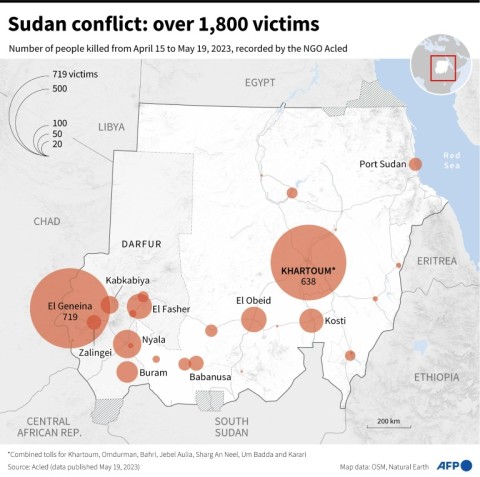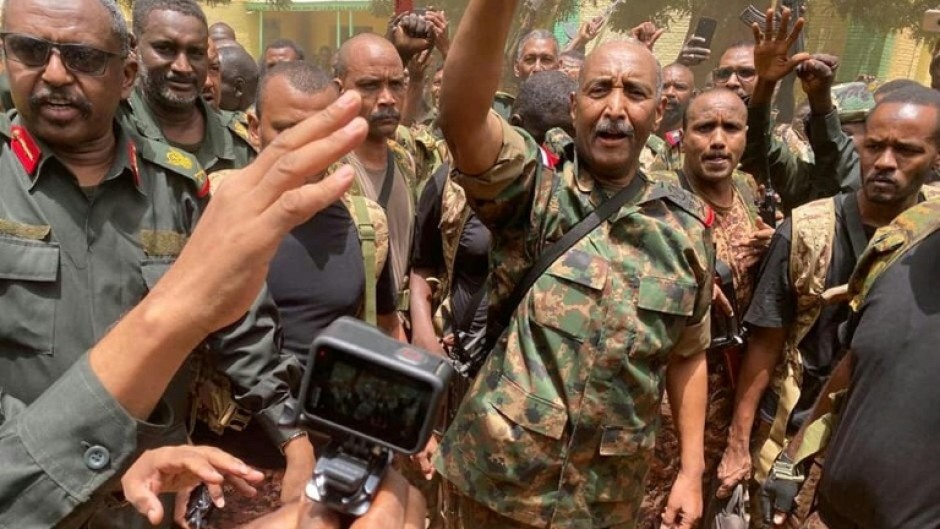
KHARTOUM - The Sudanese army suspended its participation in US- and Saudi-brokered ceasefire talks on Wednesday, accusing its paramilitary foes of failing to honour their commitments.
The mediators of the talks in the Saudi Red Sea city of Jeddah have acknowledged repeated violations of the truce by both sides but have so far held off imposing any sanctions in the hope of keeping the warring parties at the negotiating table.
The army walked out "because the rebels have never implemented a single one of the provisions of a short-term ceasefire which required their withdrawal from hospitals and residential buildings," a Sudanese government official said, speaking on condition of anonymity.
READ: Sudan truce extension brings renewed fighting, little aid
The army said the paramilitary Rapid Support Forces (RSF) had also "repeatedly violated the truce", the official added.
US and Saudi mediators said late Monday that the warring parties had agreed to extend by five days a humanitarian truce they had frequently violated over the previous week.
The mediators admitted the truce had been "imperfectly observed" but said the extension "will permit further humanitarian efforts".

But despite the pledges of both sides, fighting flared again on Tuesday both in greater Khartoum and in the flashpoint western region of Darfur.
"The army is ready to fight until victory," army chief Abdel Fattah al-Burhan declared during a visit to troops in the capital.
The RSF, led by Burhan's deputy-turned-foe Mohamed Hamdan Daglo, said they will "exercise their right to defend themselves" and accused the army of violating the truce.
READ: Gunfire adds to violations near end of breached Sudan truce
Sudan specialist Aly Verjee said the mediators were eager to avoid a complete breakdown of the talks, for fear of a major escalation on the ground.
"The mediators know that the situation is bad but they do not want to state that a ceasefire is gone for fear that the situation would then become even worse," said Verjee, a researcher at Sweden's University of Gothenburg.
"The hope is that by keeping the parties talking, the prospects of arrangements that are better respected will eventually improve."
Since fighting erupted between the rival security forces on April 15, more than 1,800 people have been killed, according to the Armed Conflict Location and Event Data Project.

